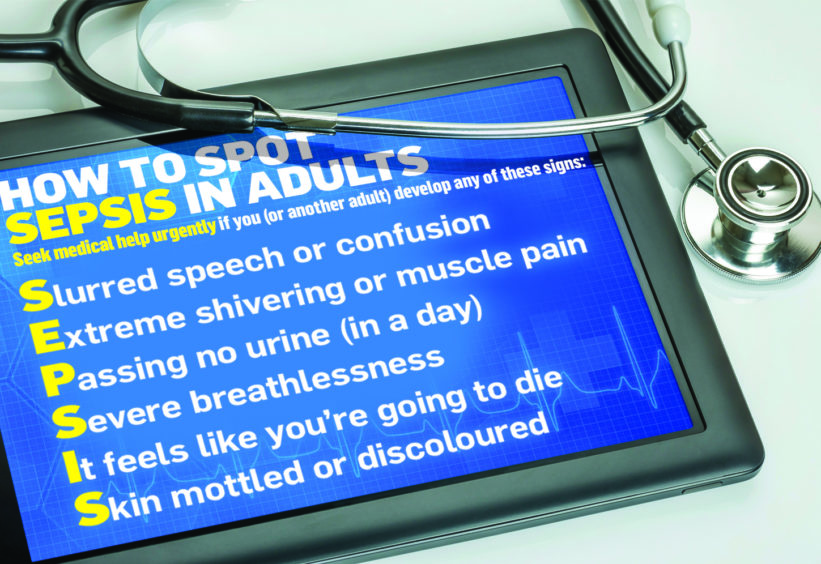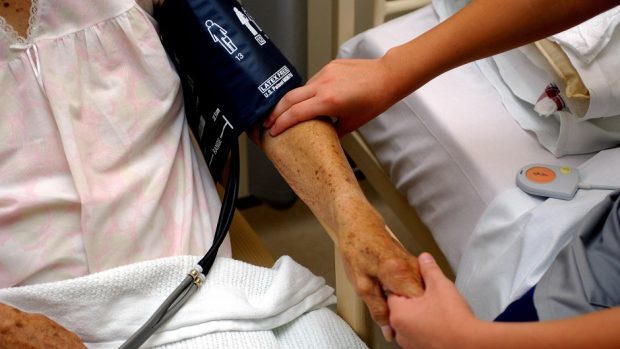Calls have been made to improve awareness of a deadly and often misunderstood condition that, according to the NHS, kills in Scotland every four hours.
Sepsis, also known as blood poisoning, results from the body’s response to infection or injury and can cause major damage to tissue and organs, resulting in loss of limbs or even death.
New data has shown confirmed cases of the killer illness have more than doubled within the NHS Grampian area in two years, sparking calls for greater awareness of the condition.
During the 2018/19 period, there were 754 confirmed cases – up from 500 the year before and just 313 in the previous period – while it has been identified as the primary cause of death for 162 patients since 2014.
The UK Sepsis Trust says the condition can initially look like flu, gastroenteritis or a chest infection and has urged the public to be on the lookout for warning signs in adults.

Medical help should be urgently found if you spot the conditions on the SEPSIS checklist: Slurred speech or confusion; Extreme shivering or muscle pain; Passing of no urine; Severe breathlessness; It feels like you’re going to die; or your Skin is mottled or discoloured.
Aberdeenshire West Conservative MSP Alexander Burnett said: “In the last full year, there were 754 confirmed cases of sepsis, against 500 the year before.
“Hard-working staff at ARI and Dr Gray’s have kept the mortality rate low while the cases have rocketed.
“They should be commended for that.
“Last year, the Scottish Conservatives won support for a nationwide sepsis awareness campaign and I believe the likes of NHS Inform Every Hour Counts has saved lives since it launched in April.
“But of course, any death through a preventable illness is one too many.
“For every hour’s delay in administering antibiotics,mortality from sepsis increases by almost 8%.”
NHS Grampian said part of the rise in cases could be attributed to a welcome improvement in public and staff awareness of the condition, changes to recording and the definition of sepsis and improved screening.
To find out more, visit www.sepsistrust.org.
